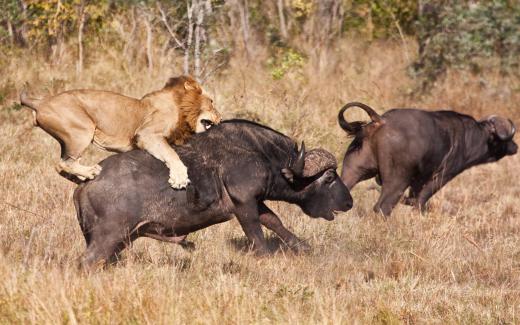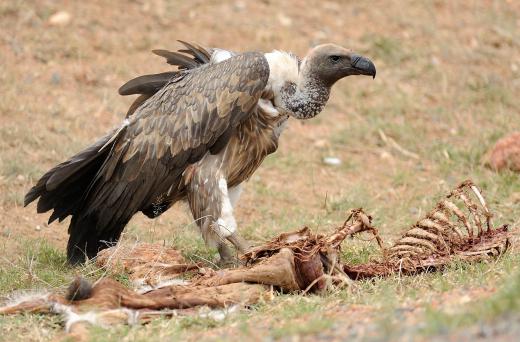In Biology, what is a Niche?
 Michael Anissimov
Michael Anissimov
In biology or ecology, a niche is a specialized area in which evolution optimizes certain species for. Some examples are predator, grazer, hunter-gatherer, scavenger, and parasite. Examples of animals occupying those niches are lion, deer, human, vulture, and roundworm. There are many different ways to determine and list these areas, including many possible levels of specificity.
The first niche was likely occupied by chemotrophs, microorganisms that gained energy from the environment by oxidizing inorganic compounds like sulfates. A couple billion years later, chemotrophs were followed by photosynthesizers, or producers/autotrophs, which gained their energy by using the sun's rays, carbon dioxide, and water to generate ATP, the energy currency of the cell. These organisms were cyanobacteria, and they persist in large numbers to this day. More modern autotrophs include trees, flowering plants, and vines.

For plants, the rainforest may be the best example of niche differentiation. There are plants that spend large amounts of energy in being taller than the others, and they make up what is called the emergent layer. They can spread out their branches and absorb light without competition, but must put so much energy into growth that the size of their foliage at the top is limited. Then there is the canopy layer, which seeks to be just average, taking in all the energy it can while competing with neighboring plants. Below the canopy are various specialized plants, such as vines and even carnivorous plants, like the pitcher plant. All these evolutionary strategies represent a distinct niche. Each one may be occupied by hundreds or thousands of competing organisms.

Among animals, the main categories are predators, consumers, and omnivores. There are unusual variants in these categories, such as scavengers and parasites. Ecologies tend to have a pyramid structure, with producers as the most organism, followed by consumers, then predators.
AS FEATURED ON:
AS FEATURED ON:















Discussion Comments
Niches are a very important part of any ecosystem. It is not true that there can only be one specific animal in one specific niche – however, having more than one often creates competition which can lead to major ecosystem problems
I guess what I mean to say is that while it is possible for two different species to fill the same niche temporarily, it is not advantageous to either species.
That is part of the reason that many of us feel that we should conserve wildlife habitats as much as possible – that way animals who no longer have homes in their own niches are not moving in on other’s niches, creating big problems.
I think a simple way to put what a niche is this; it is a specific place that one particular organism or species takes up in their world. In their own little ecosystem they have a very specialized job which without them would not be fulfilled.
Haven’t you ever heard about a person ‘finding a niche in life?’ Well, this has much the same meaning, just in a different context.
For instance, in my area of the world we have a lot of deer. They are everywhere! This has a lot to do with the fact that my area provides them a great ecosystem to live in. Lots of woods, water, and food!
Because we have plenty of deer, we also have plenty of deer hunters who use the animals for meat.
Beyond that, we also have buzzards that are there to help clean up the mess. Each one of those animals listed –people, deer, buzzard – have their own niche in the world that I live in.
A niche is specific thing that a specific organism needs for survival. Not two different organisms can share the same niche or competition will arise. In a nutshell, it's something an organism needs for survival. -Drew
A niche is a cycle an organism goes through every day to survive. xoxo
whats the niche of an onmivore?
We learned about a niche in class. It is anything that an organism uses or needs to be able to survive. Trust me I'm in honors biology.
i still don't really understand what a niche is. could someone explain it better?
what is the niche of the predator, of the prey?
Post your comments